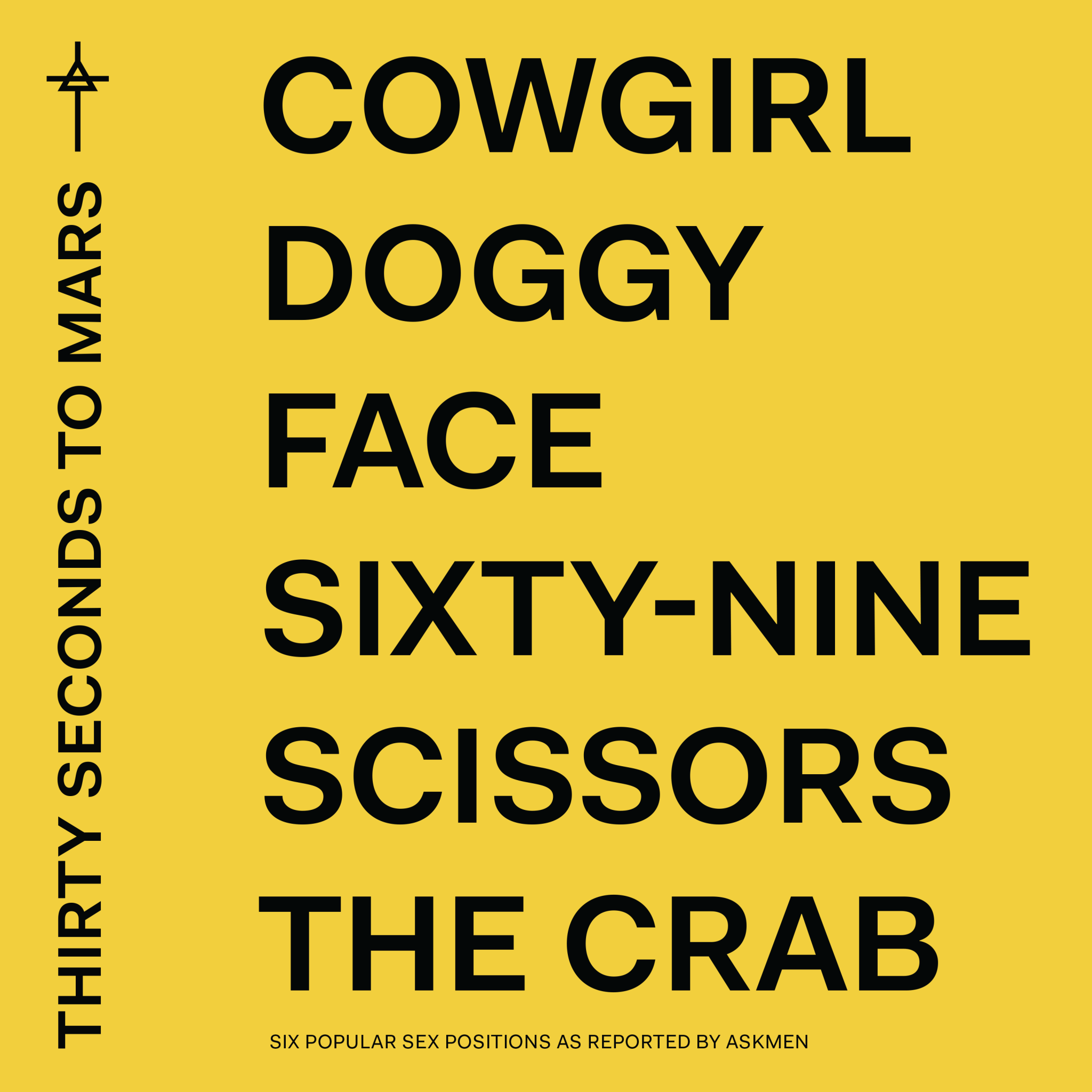We arguably haven’t had an entertainer who was a superstar in both film and music since the heyday of Will Smith and J.Lo. Justin Timberlake and Beyoncé‘s acting careers never quite became more than a side effect of their success in music, and Donald Glover is still on his way to multimedia dominance. That means, it pains me to say, that Jared Leto is currently America’s favorite actor/musician.
When Leto, then best known as the ‘90s TV hunk of My So-Called Life, debuted 30 Seconds to Mars in 2002, he had enough fame to get his band a major label deal and opening slots on Puddle of Mudd and Incubus tours. They could’ve been quickly forgotten alongside past actor vanity projects like Dogstar or 30 Odd Foot of Grunts. Instead, they kept plugging away, at some point over the next decade becoming Thirty Seconds to Mars (like Matchbox 20 becoming Matchbox Twenty, somehow spelling out the number signifies seriousness). And they also became one of the biggest rock bands in the world. Leto didn’t even have to quit his day job to make it happen, in recent years winning an Oscar for Dallas Buyers Club and scoring his biggest box office hit in Suicide Squad.
Like many artists in 2018, Thirty Seconds to Mars felt compelled to make a politically charged album inspired by America’s fraught present state. But this is a band that exists for people who find the Killers too subtle and understated, so their fifth album is simply called America. The lead single and opening track “Walk on Water” sets the tone with nonsense like, “A thin line, the whole truth, the far right, the left view.” Leto was never a particularly gifted lyricist, but now his meaningless word salad comes with the unearned air of taking a brave stand.
Where past Thirty Seconds to Mars albums toyed with sci-fi concepts and aimed for classic rock grandeur with seasoned producers like Steve Lillywhite and Bob Ezrin, America presents the most contemporary, Top 40-friendly version of Thirty Seconds to Mars to date. Bombastic drums and guitars have largely been replaced with fairly tame looped and programmed beats and ominous synths, basically reimagining Thirty Seconds to Mars as the glossy grungetronica of Imagine Dragons. Leto still screams like a banshee, but for once the sounds backing him don’t match his fury.
The supporting cast on America matches the project’s polished sounds and commercial ambitions. Mike Elizondo, a longtime Eminem collaborator who worked on some of Twenty One Pilots’ recent genre-bending hits, co-produced “Walk On Water,” and EDM hitmaker Zedd worked on the follow-up single “Dangerous Night.” The pizzicato guitar riff and vocal melody that open “Rescue Me” so strongly resemble Ellie Goulding’s 2015 dance pop hit “On My Mind” that it barely seems like it could be a coincidence. A$AP Rocky shows up on “One Track Mind” to rap a dopey eight-bar verse that ends with, “Heard it’s only 30 seconds to Mars, and it took you even less just to get to my heart.” The 46-year-old Leto duets with 23-year-old pop starlet Halsey on “Love Is Madness,” and his wildcat yowl practically drowns her out and sinks any chance of the song becoming a smash in the mold of the Chainsmokers’ “Closer.”
It’s not that Thirty Seconds to Mars were such a good rock band that there’s something wrong with them trying to go pop. If Jared Leto is trying to become more famous, this is a more tasteful way to do it than his scenery-chewing turn as the Joker. But his band’s best work, from 2006’s menacing “The Kill” to 2009’s surging, anthemic “Kings and Queens,” benefited from a lot of energy and volume. Shannon Leto, Jared’s older brother and only permanent bandmate throughout their career, has long been their secret weapon, bashing away at cymbals and erupting into gratuitous snare drum fills. Drum machines take over from Shannon Leto for most of America, but he unveils a decent singing voice of his own on the acoustic “Remedy,” as well as a penchant for dippy lyrics that apparently runs in the family (“Hey man, where’d you go today? Did you find some place to stay, far far far away?”).
It may sound like a mean joke to say that the best part of the album is when it cuts to silence at the end. But when America‘s closing track “Rider” abruptly stops before the three-minute mark, just when it seems to be gearing up for another minute of power ballad grandeur, it’s surprising and unusually satisfying. It’s a rare glimpse at a Thirty Seconds to Mars that’s willing to subvert expectations. And it’s a testament to the power of judicious editing—a virtue that a Hollywood pro like Leto should place more value in with his music.





